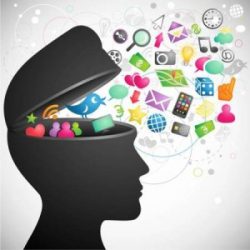
In today’s world of social media and 24/7 news, information overload is real and potentially doing more harm than good—causing many to make poor decisions and feel an overwhelming amount of stress.
How is this possible? Science tells us that with too much information (aka – information overload) people’s decisions make less and less sense and their stress level rises. This may seem counter-intuitive at first. After all, isn’t getting all the facts in the best interest of everyone? And if some information is good, then more information is even better, right? Wrong!
Here’s a fact to consider: Decisions requiring creativity benefit from letting the problem incubate below the level of awareness, something that becomes ever-more difficult when information never stops arriving.
The Problem with Information Overload
Every bit of incoming information presents a choice: whether to pay attention, whether to reply, and/or whether to factor it into an impending decision. Decision science has shown that people faced with a plethora of choices are apt to make no decision at all. Although we say we prefer more information, this can, in fact, be more debilitating.
A key reason for information’s diminishing or even negative returns is the limited capacity of the brain’s working memory. It can hold roughly seven items, which is why seven-digit phone numbers were a great idea. Anything more must be processed into long-term memory. That takes conscious effort as the brain struggles to sort through the information overload and figure out what to keep and what to disregard.
It isn’t only the quantity of information that knocks the brain for a loop; it’s the rate. The ceaseless influx trains us to respond instantly, sacrificing accuracy and thoughtfulness. We are conditioned to give greater weight to what is latest, not what is more important or more interesting.
In other words, when faced with information overload, we’re fooled by immediacy and quantity and think it’s quality. What starts driving decision is the urgent, rather than the important.
Especially online, it is so much easier to look for more and more information rather than sit back and think about how it fits together. This is why the practice of REFLECTION in the Without Stress Model is so important.
My new book, Live Without Stress: How to Enjoy the Journey, is now available as a Kindle book. This book will show how to use some simple strategies to significantly reduce your stress, promote responsibility, increase your effectiveness, improve your relationships, and truly enjoy life’s experiences.





